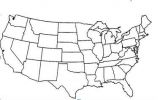| « Ever Wonder? | Of, By and For the People » |
Policing the Police
There was something ironic in the symbolic protest made last Saturday by hundreds of police officers standing outside the crowded Christ Tabernacle Church where the funeral service for Officer Raphael Ramos was being held. When Mayor Bill De Blasio stood to eulogize the slain officer, many of the cops outside turned and faced away from the screen that had been set up outside the church so the overflow crowd could witness the service. They were expressing their anger with the Mayor over remarks he made in the aftermath of the failure of a Grand Jury to return an indictment against an NYPD officer in the death of Eric Garner. The irony is this: By protesting, the cops at the funeral were exercising their First-Amendment Right; one of their complaints about the Mayor is the supportive statements he made about the peaceful protests that broke out in the wake of the Garner decision were a betrayal.
This was an instance where the attitude of many police officers was on display: They see themselves as separate and distinct from the society as a whole. Given the special place police have in that society, this attitude is problematic. Reasonable people will stipulate that society needs police and that being a police officer is a complicated and demanding job. It is not logical then for a group that resists the policing of itself to expect support and respect from the communities that it is sworn to “protect and serve.”
In the week between the murders of Officer Ramos and Officer Wenjian Liu and Officer Ramos' funeral, Adam Johnson posted about the posture of defiance the Department (particularly the rank-and-file officers’ union, the Partolmen’s Benevolent Association) has had towards De Blasio since he was sworn in as Mayor. Commenting on Johnson’s post on the groupthink blog, Lara Emily summarized the insular mindset exhibited by cops in a unique way;
“Police forces in many ways mirror organized crime. They have codes and traditions and values, they are obsessed with protecting "the family" and are driven by a need, no [a] desire for "respect" at all costs. They are, when left unchecked, a legal mafia.”
There are parts of the world where the police often abuse their power. In some poorer countires, extorting money from ordinary citizens is considered part of the job. In many places, the cops are in league with the criminals. In Mexico, reports indicate that cops were involved in the mass killings of college students. Rape is a problem in India simply because, in most cases, the police do not bother to pursue rapists even if the perpertrators are known to them.
Admittedly, these examples are from societies that are generally poor and where the rule of law is tenuous. We like to believe that we are different. Perhaps we are, but the basic question still applies:
Who polices the police?
2 comments
If Eric Garner and Michael Brown had flashed PBA cards would they be alive today?
Do ethics require the end of the use of PBA cards by
asking for professional courtesy?

Paul makes a great point. The use of PBA cards is another indication of special privilege bestowed by police officers.

